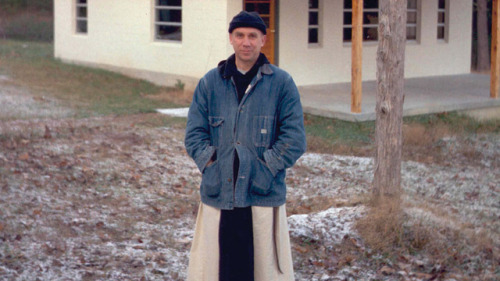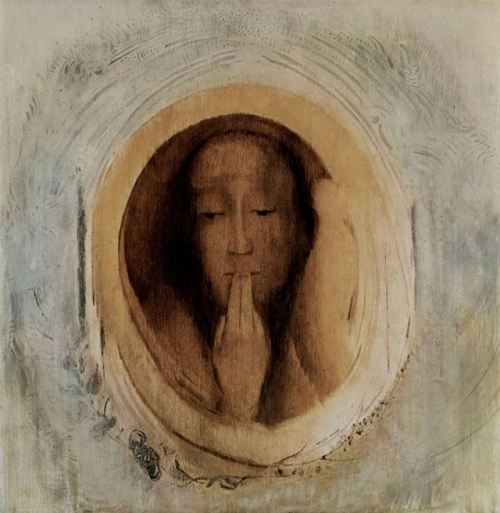#thomas merton

Merton’s Dancing Waters – 24in x 28in
“The mere ability to choose between good and evil is the lowest limit of freedom, and the only thing that is free about it is the fact that we can still choose good.To the extent that you are free to choose evil, you are not free. An evil choice destroys freedom.We can never choose evil as evil: only as an apparent good. But when we decide to do something that seems to us to be good when it is not really so, we are doing something that we do not really want to do, and therefore we are not really free.Perfect spiritual freedom is a total inability to make any evil choice. When everything you desire is truly good and every choice not only aspires to that good but attains it, then you are free because you do everything that you want, every act of your will ends in perfect fulfillment.Freedom therefore does not consist in an equal balance between good and evil choices but in the perfect love and acceptance of what is really good and the perfect hatred and rejection of what is evil, so that everything you do is good and makes you happy, and you refuse and deny and ignore every possibility that might lead to unhappiness and self-deception and grief. Only the man who has rejected all evil so completely that he is unable to desire it at all, is truly free.God, in Whom there is absolutely no shadow or possibility of evil or of sin, is infinitely free. In fact, he is Freedom.”
— Thomas Merton, “What Is Liberty?”, New Seeds of Contemplation
[Ad Parnassum - Paul Klee]
• Thomas Merton (1915-1968) is arguably the most influential American Catholic author of the twentieth century. His autobiography, The Seven Storey Mountain, has sold over one million copies and has been translated into over fifteen languages. More: http://merton.org/chrono.aspx
• Ad Parnassum (1932) is considered to be the best example of Paul Klee’s pointillist style; it is also one of his most finely worked paintings. Ad Parnassum was created in the Dusseldorfer period. More: https://www.paulklee.net/ad-parnassum.jsp
Post link
Art enables us to find ourselves and lose ourselves at the same time.
- Thomas Merton, No Man Is An Island

“In humility is the greatest freedom. As long as you have to defend the imaginary self that you think is important, you lose your peace of heart. As soon as you compare that shadow with the shadows of other people, you lose all joy, because you have begun to trade in unrealities and there is no joy in things that do not exist.”
—Thomas Merton, with thanks to louie, louie. Photo found at OSV Newsweekly.
Post link
“Vocation to Solitude — To deliver oneself up, to hand oneself over, entrust oneself completely to the silence of a wide landscape of woods and hills, or sea, or desert; to sit still while the sun comes up over that land and fills its silences with light. To pray and work in the morning and to labor and rest in the afternoon, and to sit still again in meditation in the evening when night falls up on that land and when the silence fills itself with darkness and with stars… to belong completely to such silence, to let it soak into the bones, to breathe nothing but silence, to feed on silence, and to turn the very substance of life into a living and vigilant silence.”
—Thomas Merton from Thoughts In Solitude (Farrar, Straus and Giroux, 1956).
Pictured: Odilon Redon, Silence, 1900, Museum of Modern Art (MoMA), New York City, NY, US
Post link



